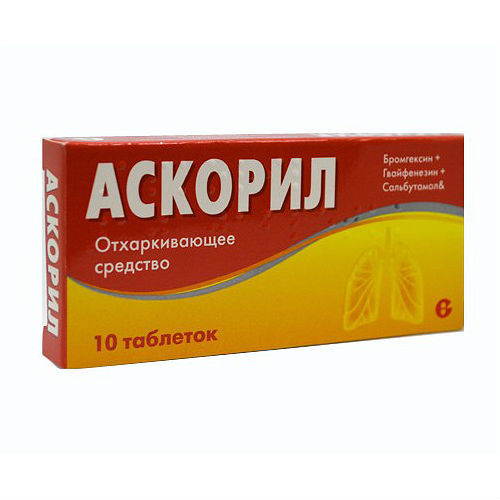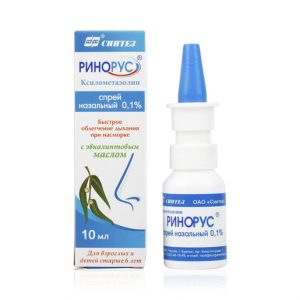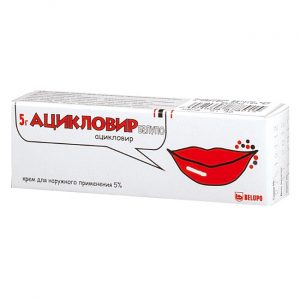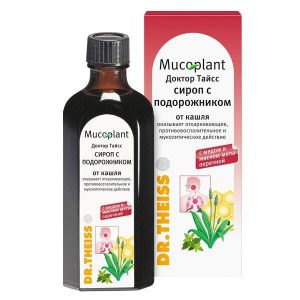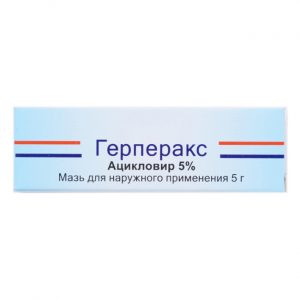Description
Latin name
Ascoril
release form
tablets
packaging 10 pcs
Pharmacological action
Ascoril – bronchodilator, mucolytic, expectorant.
Pharmacodynamics
Combined drug, has a bronchodilator, expectorant and mucolytic effect.
Salbutamol – a bronchodilator, stimulates beta2-adrenergic receptors of the bronchi, blood vessels and myometrium. Prevents or eliminates bronchospasm, reduces airway resistance, increases lung capacity. It causes the expansion of coronary arteries, does not reduce blood pressure.
Bromhexine is a mucolytic agent that has an expectorant and antitussive effect. Increases the serous component of the bronchial secretion activates the cilia of the ciliated epithelium, reduces the viscosity of sputum, increases its volume and improves discharge.
Guaifenesin is a mucolytic agent that reduces the surface tension of the structures of the bronchopulmonary apparatus, stimulates the secretory cells of the bronchial mucosa, producing neutral polysaccharides, depolymerizes acid mucopolysaccharides, reduces the viscosity of sputum, activates the ciliary apparatus of the bronchi, facilitates the removal of sputum and facilitates the transition of unproductive cough.
Pharmacokinetics
Salbutamol
When administered, absorption is high. Eating reduces the rate of absorption, but does not affect bioavailability. Communication with plasma proteins – 10%. Penetrates through the placenta. It undergoes a presystemic metabolism in the liver and intestinal wall, by phenol sulfotransferase inactivates up to 4-o-sulfate ester. T1 / 2 – 3.8-6 hours. It is excreted by the kidneys (69 90%), mainly in the form of an inactive phenol sulfate metabolite (60%) for 72 hours and with bile (4%). The bioavailability of orally administered salbutamol is about 50%.
Bromhexine
When ingested, it is almost completely (99%) absorbed in the digestive tract within 30 minutes. Bioavailability is low (the effect of the primary passage through the liver). Penetrates through the placental barrier and the BBB. In the liver, it undergoes demethylation and oxidation, is metabolized to pharmacologically active ambroxol. T1 / 2 – 15 hours (due to slow back diffusion from tissues). It is excreted by the kidneys. With chronic renal failure, the excretion of metabolites is impaired. With repeated use, it can accumulate.
Guaifenesin
Absorption from the gastrointestinal tract is fast (25-30 minutes after ingestion). T1 / 2 – 1 hour. Penetrates into tissues containing acidic mucopolysaccharides. Approximately 60% of the drug administered is metabolized in the liver. It is excreted by the lungs (with sputum) and kidneys both unchanged and in the form of inactive metabolites.
Indications
bronchial asthma
tracheobronchitis
obstructive bronchitis
pneumonia
pulmonary emphysema
whooping cough
pneumoconiosis
pulmonary tuberculosis.
Contraindications
hypersensitivity to the components of the drug
tachyarrhythmia, myocarditis
heart defects
decompensated diabetes mellitus
thyrotoxicosis
glaucoma
hepatic or renal failure
gastric and duodenal ulcer in the acute stage
gastric bleeding srdlp period lactation srdlp pregnancy
Precautions: diabetes mellitus gastric and duodenal ulcer in remission.
Use during pregnancy and lactation
During pregnancy, the use of the drug is not recommended.
If treatment with the drug is necessary during lactation, breast-feeding should be discontinued.
Composition of
1 tablet contains:
Active ingredients:
salbutamol – 2 mg,
bromhexine – 8 mg,
guaifenesin – 100 mg
Excipients:
calcium hydrogen phosphate
starch corn
methyl parahydroxybenzoate (methyl paraben)
propyl parahydroxybenzoate (propyl paraben)
talc purified
silicon dioxide colloidal magnesium
magnesium stea.
Dosage and Administration
Inside. Adults and children over 12 years old – 1 tablet 3 times a day for children from 6 to 12 years old – 1/2 or 1 tablet 3 times a day.
Children under 6 years of age are recommended to use Ascoril Exectorant Syrup.
Side effects of
Rarely when used at high doses:
headache,
dizziness,
sleep disturbance,
sleep disturbance,
drowsiness,
tremor, cramps, cramps, cramps, cramps, cramps, cramps stomach and duodenum,
heart palpitations,
may stain urine pink,
allergic reactions (rash, urticaria),
collapse,
bronchospasm.
Drug Interactions
Other beta2-adrenergic agonists and theophylline enhance the effects of salbutamol and increase the likelihood of side effects.
Ascoril is not prescribed simultaneously with drugs containing codeine and other antitussive drugs, as this makes it difficult to discharge liquefied sputum.
Ascoril bromhexine, which is part of the drug, promotes the penetration of antibiotics (erythromycin, cephalexin, oxytetracycline) into the lung tissue.
It is not recommended to use the drug Ascoril simultaneously with non-selective beta-adrenergic receptor blockers, such as propranolol.
Ascoril salbutamol, a part of the drug, is not recommended for patients who receive MAO inhibitors.
Diuretics and GCS drugs enhance the hypokalemic effect of salbutamol.
It is not recommended to take along with the drug Ascoril alkaline drink.
Overdose
Symptoms: increased side effects.
Treatment: symptomatic therapy.
Storage Conditions
Store in a dark place at a temperature not exceeding 25 ° C.
Shelf life
2 years
Active ingredient
Bromhexin, Gufifesin, Salbutamol
Dosage PMA
Prescribing
Prescribing
For adults as prescribed by a doctor, Children over 6 years old, As prescribed by a doctor
Glenmark Pharmaceuticals Ltd., India
